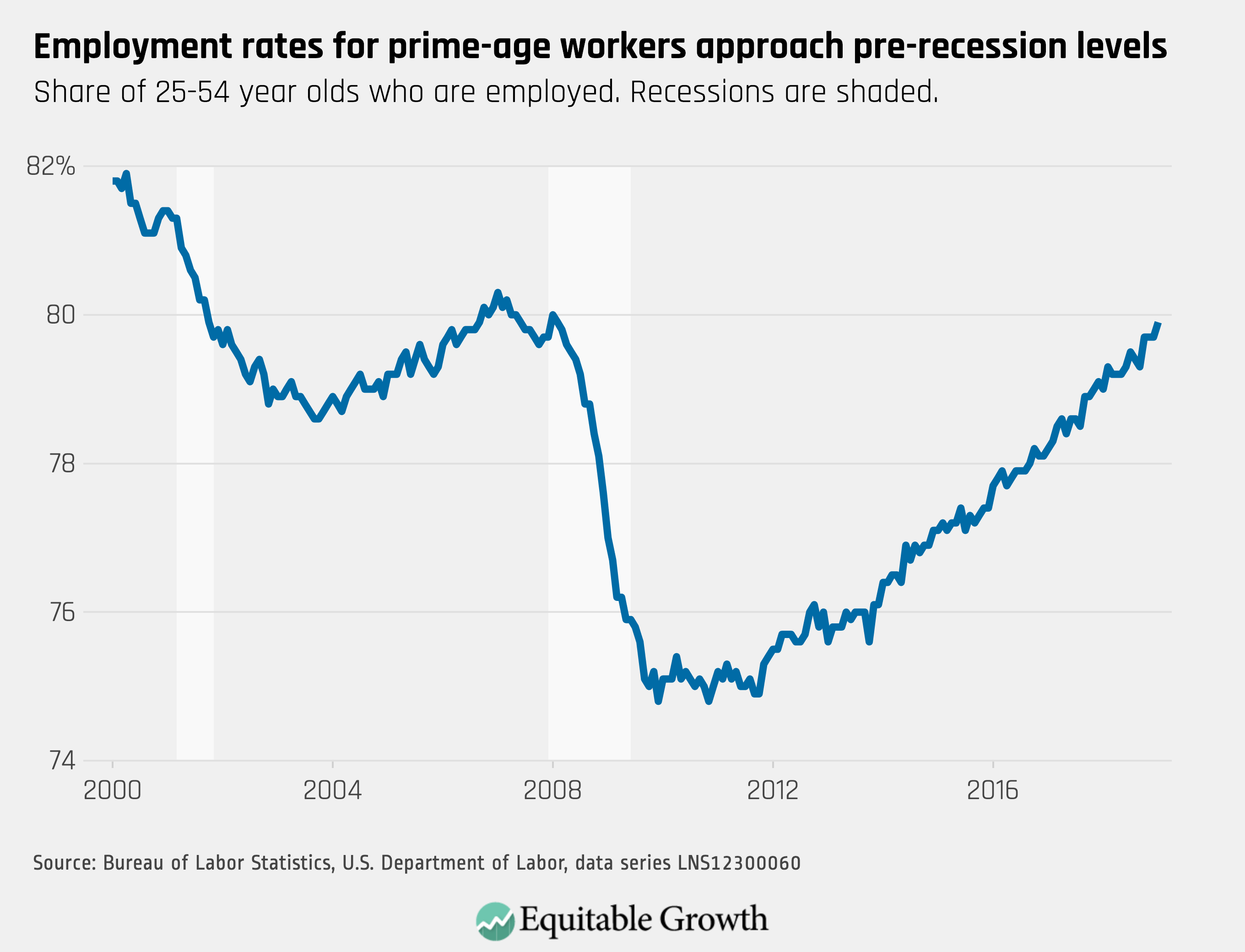Weekend reading: “it’s all about the measurement” edition
This is a weekly post we publish on Fridays with links to articles that touch on economic inequality and growth. The first section is a round-up of what Equitable Growth published this week and the second is the work we’re highlighting from elsewhere. We won’t be the first to share these articles, but we hope by taking a look back at the whole week, we can put them in context.
Equitable Growth round-up
In the latest installment of Equitable Growth’s In Conversation series, I chat with Bhash Mazumder, an economist at the Federal Reserve Bank of Chicago about intergenerational mobility—the relationship between a parent and child’s income—why it’s a metric of success for the economy, and the important role social safety net programs play in ensuring that opportunity remains available to all Americans.
The unraveling of the deal for Amazon.com Inc. to build one of its two HQ2s in New York City illustrates the importance of public involvement and feedback in policy decisions, explains University of Texas at Austin political scientist and Equitable Growth grantee Nathan Jensen. You can learn more about Jensen’s work on the importance of transparency for policymaking in his other columns and working papers for Equitable Growth.
Learning on the job from more experienced coworkers is a huge contributor not only to workers’ individual human capital but also for the U.S. economy’s aggregate human capital stock. In a column explaining the findings of his latest working paper for Equitable Growth’s Working Paper Series, University of Minnesota economist Kyle Herkenhoff argues that policies to incentivize internships, vocational training, mentorships, or apprenticeships that would pair high- and low-skill workers would increase U.S. GDP per capita by approximately 2 percentage points.
A little noticed provision of the legislation that ended the government shutdown in February encourages the U.S. Department of Commerce’s Bureau of Economic Analysis “to develop and begin reporting on income growth indicators” that show “how incomes grow in each decile of the income distribution.” Austin Clemens explains why measuring how overall economic growth is distributed to different parts of the income spectrum would allow for a more meaningful understanding of how Americans are actually experiencing the economy.
Catch up on Brad DeLong’s latest worthy reads from Equitable Growth and around the web.
On Thursday, Equitable Growth released its latest research in its paid leave research accelerator initiative. In a report and accompanying issue brief, Columbia University School of Social work adjunct instructor Amy Batchelor assesses the range and robustness of the data available for answering questions about how paid leave affects workers, families, employers, and the economy as a whole and offers a blueprint for building the necessary data architecture in order to advance evidence-backed policy.
Also on Thursday, Equitable Growth’s Director of Markets and Competition Policy Michael Kades testified before the House Judiciary Committee at a hearing on the effects of consolidation and anticompetitive conduct in health care markets. In advance of his testimony, Kades published a blog post discussing the lack of competition in the market for prescription drugs and its price consequences.
Earlier this morning, the U.S. Bureau of Labor Statistics released new data on the U.S. labor market during the month of February. Check out the most relevant graphs from the data, compiled by Kate Bahn and Will McGrew.
Links from around the web
U.S. birth and fertility rates are at their lowest recorded level, parents make up a smaller share of the U.S. labor force than at any other time in at least a century, and U.S. women’s labor force participation rate has both fallen over the past 20 years and diverged from that of other advanced economies. Analysis suggests that the lack of affordable, universal childcare could be the cause both of women sitting on the sidelines of the labor market and people’s decision to have fewer children. [wapo]
John Oliver explores the impact of automation on jobs and the tasks associated with certain occupations in a segment that includes an interview with Massachusetts Institute of Technology economist and Equitable Growth Research Advisory Board member David Autor. [last week tonight]
The American Family Act, which would dramatically expand the child tax credit, was introduced Wednesday by Senators Michael Bennet (D-CO) and Sherrod Brown (D-OH). The bill would implement one of the recommendations of a new report from the National Academy of Sciences on child poverty, which found that a child allowance would be an evidence-based, high-impact way to cut the child poverty rate. The co-authors of that report included Princeton University economist and Equitable Growth Steering Committee member Janet Currie alongside University of California, Irvine professor of education Greg Duncan and University of Wisconsin-Madison professor of public affairs and economics Tim Smeeding, both of whom are also Equitable Growth grantees, among others. Researchers estimate the bill would cut child poverty from 14.8 percent to 9.5 percent, lifting 4 million children out of poverty. [vox]
The broader consequences of economic inequality on health and happiness are explored in a segment on PBS’s Newshour, which includes interviews with University of Michigan economists Betsey Stevenson and Justin Wolfers. [pbs]
Modern Monetary Theory, or MMT, a theory that governments can run a much higher budget deficit without dire consequences than previously thought, has been getting an increasing amount of attention from economic policy circles over the past few months, especially with the release of the Green New Deal. Former U.S. Treasury Secretary Larry Summers cautions that while perhaps fiscal constraints aren’t as severe as originally thought, nonetheless MMT goes too far. [wapo]
Friday figure

Figure is from “Equitable Growth’s Jobs Day Graphs: February 2019 Report Edition” by Kate Bahn and Will McGrew
